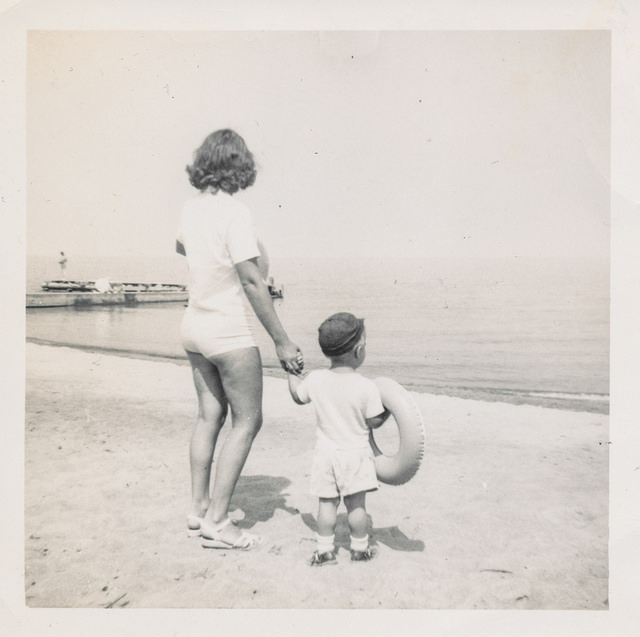You know that moment—when you get hit by an insight so intensely, it feels like it knocked you over the head.
Suddenly, emotions flood your body as you realise that maybe you haven’t been as kind, wise, and compassionate as you thought you were being.
It’s as if you’ve been thrown into the body of another and felt what it’s like to be them for a small moment in time. It’s the very definition of empathy.
In that instant, you are given an option:
Are you going to ignore it and beat yourself up about it, or are you going to take it as an opportunity to do some good in this world? To share your insight and, hopefully, inspire greater compassion in others?
I have to say, I kind of love it when this happens. It’s like a rude (and welcomed) awakening, letting us know that we are still alive. That we are human. That no matter how much we try to be perfect, to do good, to be the best versions of ourselves, there are times when our experiences get stretched and humanity knocks us down.
There I was, sitting with my two girlfriends, celebrating the end of my first retreat in Costa Rica. As we clinked glasses—Cheers!—of lime margaritas (on the rocks, of course) and took turns dipping freshly made corn tortilla chips into salty guacamole, I had a revelatory thought.
I had been listening to my girlfriend tell stories of her three daughters, and what it is like to be a parent and to be imperfect.
However, something else came over me: Compassion. Love. Empathy.
Just because we have children, that doesn’t mean that all of a sudden, our entire existence becomes about being a parent and all of our old ways leave the building. Sure, many things change. But we are all on a journey, and I can almost guarantee that if the space was safe, most parents would admit to their own wrong-doings, moments when they slipped up and aren’t proud of it.
We are not perfect. None of us are. There is no such thing as the perfect parent.
In that moment, I was immediately brought to my ground zero: my parents. My mum. I thought about how many times I have spoken about her and my father’s relationship and how much pain it caused me. I remembered times I’d go off on a tangent, talking about when my parents let me down, hurt me, or caused me pain. I remember placing blame on them and seeing them as possessions, rather than individuals on their own journeys.
I felt the heat of shame, guilt, and regret. They are just people who are doing their best with the circumstances they are given. I thought about how horrible and difficult it must be to have your children rehearse and reiterate the intimate and private details of your life to others. I thought about the pressure and challenge to maintain a healthy and balanced relationship with your partner, once children are involved.
The truth is, my relationship with my husband is far from perfect, and we have had our fair share of difficult moments. Explosive fights, shouting, swearing—the works. What if a child was there to witness it? What would they say about us? What would they tell the world? How would that feel? What would it be like to be seen by others through the eyes of another?
In the work that I do, I almost always end up in conversation about our parents—we all have stories. We blame them for our childhood. I’d say it is almost impossible for a child to grow up with any parent and come out unscathed.
So you have unresolved issues with your parents. Welcome to the world. As with anything in life, we always have the opportunity to turn things around, to switch perspectives. What if I told you that we can release these feelings we have about our parents, and without really doing anything? Without even having one conversation with them?
It all starts with this word:
Empathy.
For example, when women are brought into a group together, the initial vibes can often feel competitive and anxious. We immediately create stories and assumptions of each other. She is rich. She gets money from her father. She is self-absorbed. She’s not nice. She gets everything easy. She is annoying. She is shallow. All of the stories. And then, there is a moment where vulnerability walks into the room. When a woman shares a piece of her story and shows her true colours. When she chooses to drop the mask, let down her guard, and share what she is currently experiencing.
Every single time this happens, the energy completely shifts. It’s a shock to the system, isn’t it? Suddenly, not only do we drop our assumptions, but we are also connected to her. We see ourselves in her story. We can relate to her pain and suffering. By the way, I am specifically speaking of women in this example, however the same could be said for men as well.
The truth is that no matter what has happened, by choosing to see your parents as individuals who aren’t infallible, you will also be offering yourself the space to be seen this way. It’s about changing the conversation and breaking the patterns of placing blame and pointing fingers. I believe that we will continue to choose the same life experience, including who our parents are, until we learn the lesson we are here to learn: to choose love, and to love unconditionally.
So how can you change your relationship with your parents?
>> When your initial instinct is to place blame, instead choose to see their side of the story (put yourself in their shoes).
>> Look to their childhood and try to understand where their pain comes from.
>> Switch the overall energy toward them by practicing daily gratitude for them and sending love when thoughts of them arise.
>> Change the conversation. The next time you are going to repeat a story, try to focus on a memory of how they showed up for you with love. (Having a hard time thinking about one? How about your birth story?)
>> Look to their relationship with their own parents—are there any parallels? Is this a pattern? Is it possible to break it?
Remember, our relationship with loved ones is a reflection of our relationship with ourselves. Are you really hard on your parents? Do you hold high expectations for them? How about for yourself? Ask yourself what you want your relationship with yourself to be like, and then use that as a marker for how to shape your relationship with your parents.
~
Author: Chloe Elgar
Image: simpleinsomnia/Flickr
Editor: Catherine Monkman


 Share on bsky
Share on bsky





Read 0 comments and reply